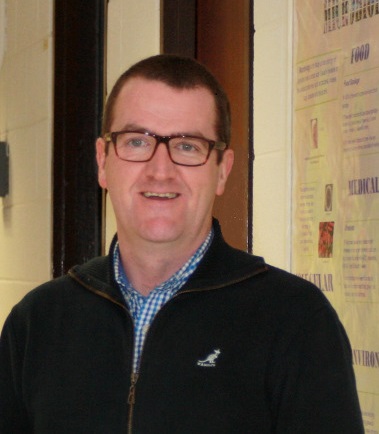In This Section
- Home
- Study Microbiology at UCC
- Postgraduate Research Programmes
- About
- Research
- People
- Academic Staff
- David Clarke, Head of School
- Hilary Browne
- Marcus Claesson
- Sinéad Corr
- Alan Dobson
- Gerald F. Fitzgerald
- Cormac Gahan
- Colin Hill
- John MacSharry
- Jennifer Mahony
- Ruth Massey
- John P. Morrissey
- Fergal O'Gara
- Niall O'Leary
- Liam O'Mahony
- Paul O'Toole
- Michael B. Prentice
- Gaurav Rajauria
- F. Jerry Reen
- Paul Ross
- Francisco Vitor Santos da Silva
- Martina Scallan
- Pauline Scanlan
- Andrey Shkoporov
- Douwe van Sinderen
- Jens Walter
- Technical Staff
- Administrative Staff
- Academic Staff
- Staff Resources
- Postgrad and Post Doc Committees
- School Seminars
- News/Newsletters
- Athena SWAN
- Current Vacancies
- Contact Us
BIOMERIT team publishes research on the influence of bile acids in cancer progression in BMC Cancer

A research team from BIOMERIT Research Centre, School of Microbiology, UCC have characterised a link between bile acids and potential in vitro cancer progression in prostate and breast cancer cells.
Published in the cancer journal BMC Cancer, “Bile acids destabilise HIF-1α and promote anti-tumour phenotypes in cancer cell models” (BMC Cancer. 2016 Jul 14;16:476; DOI: 10.1186/s12885-016-2528-2), the research investigates how selected bile acids significantly target key in vitro cancer progression phenotypes such as clonogenicity, adhesion, invasion, migration in cancer cells. The research revealed how bile acids destabilised Hypoxia Inducible Factor 1 alpha, (HIF-1α), a major cancer transcription factor implicated in metastatic tumour progression. A downstream effector of HIF-1α, hexokinase II (HKII) was also affected suggesting a role for bile acids in cancer signalling.
Overall, the data suggests that modulation of bile acid intake, primarily via the diet, could have beneficial effects on cellular homeostasis, therefore maintaining a well-balanced diet could exert “probable” long term protective roles against cancer progression.
The research was led by Professor Fergal O’Gara and Dr Jerry Reen in collaboration with Professor Rosemary O’Connor, School of Biochemistry and Cell Biology UCC. Dr John Phelan, who conducted the day-to day study management, previously won a prestigious Science Foundation Ireland (SFI) Technology Innovation Development Award (TIDA) in 2014. The programme of research was funded by Science Foundation Ireland (SFI) Technology Innovation Development Award (TIDA).
This research reinforces BIOMERIT's commitment to investigating and developing therapies to combat solid tumour development in cancer.
School of Microbiology
Scoil na Micribhitheolaíochta
Contact us
Microbiology Office, Room FSB452, 4th Floor Food Science & Technology Building, University College Cork, Cork T12 Y337
